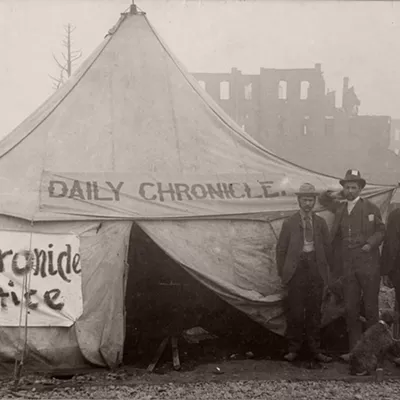It's one of the great what-ifs of the Civil War, which started 150 years ago: What if the Confederacy had won the Battle of Gettysburg? Answer: They probably would have won the war. But what makes the exercise particularly compelling this week is the fact that the Union surrender could have happened on the Fourth of July.
By 1860, politics had completely failed; by the spring of 1861, war erupted. From the start, the Confederates went on a tear — Bull Run, Seven Pines, Fredericksburg, Chancellorsville. Union generals were replaced like worn-out horses. Rebel General Robert E. Lee, sensing victory, invaded the North in June of 1863.
When he turned his Army of Northern Virginia to intercept the Army of the Potomac, he aimed to cut it off from Washington, D.C. Abraham Lincoln would have to sue for peace.
The armies met at Gettysburg, Pennsylvania. In three horrible days, July 1-3, all those dreams of a more perfect union hung in the balance. Only lucky timing and acts of bravery turned the tide.
Union Major General John Buford and his cavalry arrived in time to hold back the tide of Confederates just long enough for reinforcements to arrive. When Union forces finally did break, they ran for the hills. With the enemy on the run and victory in hand, Lee sent General Richard Ewell after the Union troops. Ewell made the blunder of the war, deciding a pursuit was impractical, leaving the Union troops to dig in on higher ground and fight another day.
As the next two days unfolded, Joshua Chamberlain of Maine defended the south flank of the Union line on Little Round Top. Out of ammunition, his brigade charged downhill, bayonets fixed, ending the assault. Then Virginian George Pickett led his charge into the brunt of the Union’s artillery. It was a bloodbath.
The day after Pickett’s charge failed, it rained. And rained. The fields around the hamlet of Gettysburg were littered with 50,000 casualties — the deadliest battle ever fought in North America. The survivors of the two armies stared at each other across the open ground. It was the Fourth of July. The Union still stood.
The Civil War went on two more years, but it was decided at Gettysburg — a reminder of how fragile this whole experiment in democracy really is. As we celebrate another Fourth of July in happier times, we can’t ever forget how dearly so many paid to preserve it.
Ted S. McGregor Jr. is the Editor and Publisher of The Inlander.

























